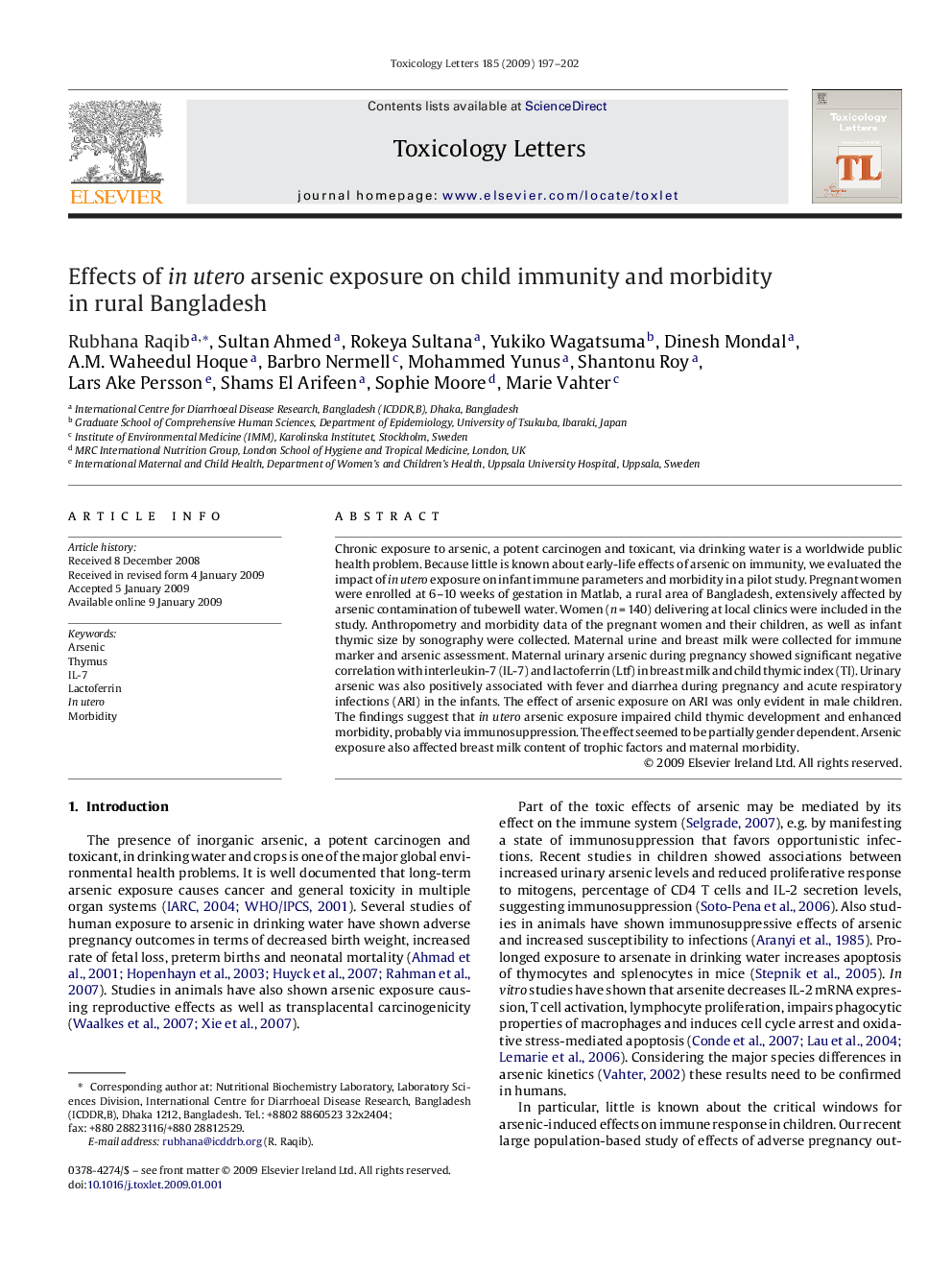| Article ID | Journal | Published Year | Pages | File Type |
|---|---|---|---|---|
| 2601087 | Toxicology Letters | 2009 | 6 Pages |
Chronic exposure to arsenic, a potent carcinogen and toxicant, via drinking water is a worldwide public health problem. Because little is known about early-life effects of arsenic on immunity, we evaluated the impact of in utero exposure on infant immune parameters and morbidity in a pilot study. Pregnant women were enrolled at 6–10 weeks of gestation in Matlab, a rural area of Bangladesh, extensively affected by arsenic contamination of tubewell water. Women (n = 140) delivering at local clinics were included in the study. Anthropometry and morbidity data of the pregnant women and their children, as well as infant thymic size by sonography were collected. Maternal urine and breast milk were collected for immune marker and arsenic assessment. Maternal urinary arsenic during pregnancy showed significant negative correlation with interleukin-7 (IL-7) and lactoferrin (Ltf) in breast milk and child thymic index (TI). Urinary arsenic was also positively associated with fever and diarrhea during pregnancy and acute respiratory infections (ARI) in the infants. The effect of arsenic exposure on ARI was only evident in male children. The findings suggest that in utero arsenic exposure impaired child thymic development and enhanced morbidity, probably via immunosuppression. The effect seemed to be partially gender dependent. Arsenic exposure also affected breast milk content of trophic factors and maternal morbidity.
